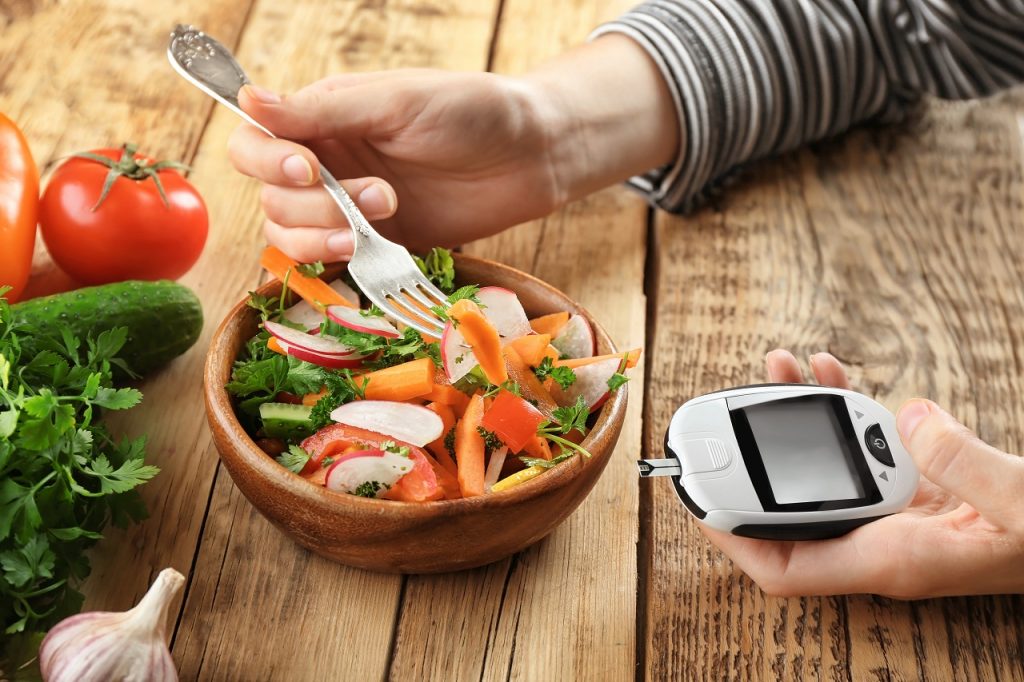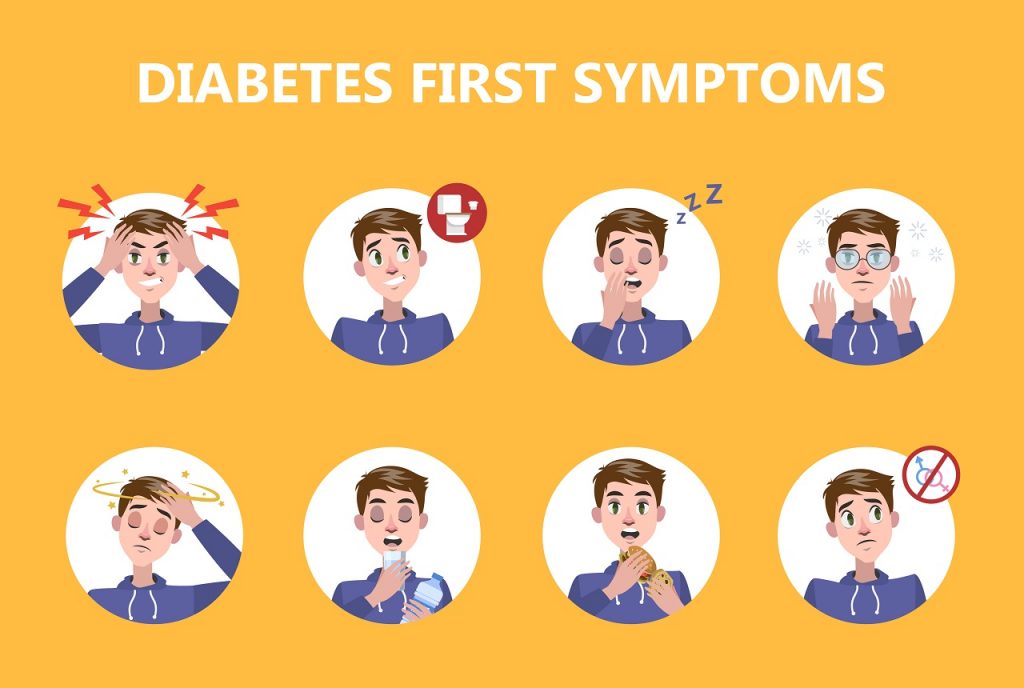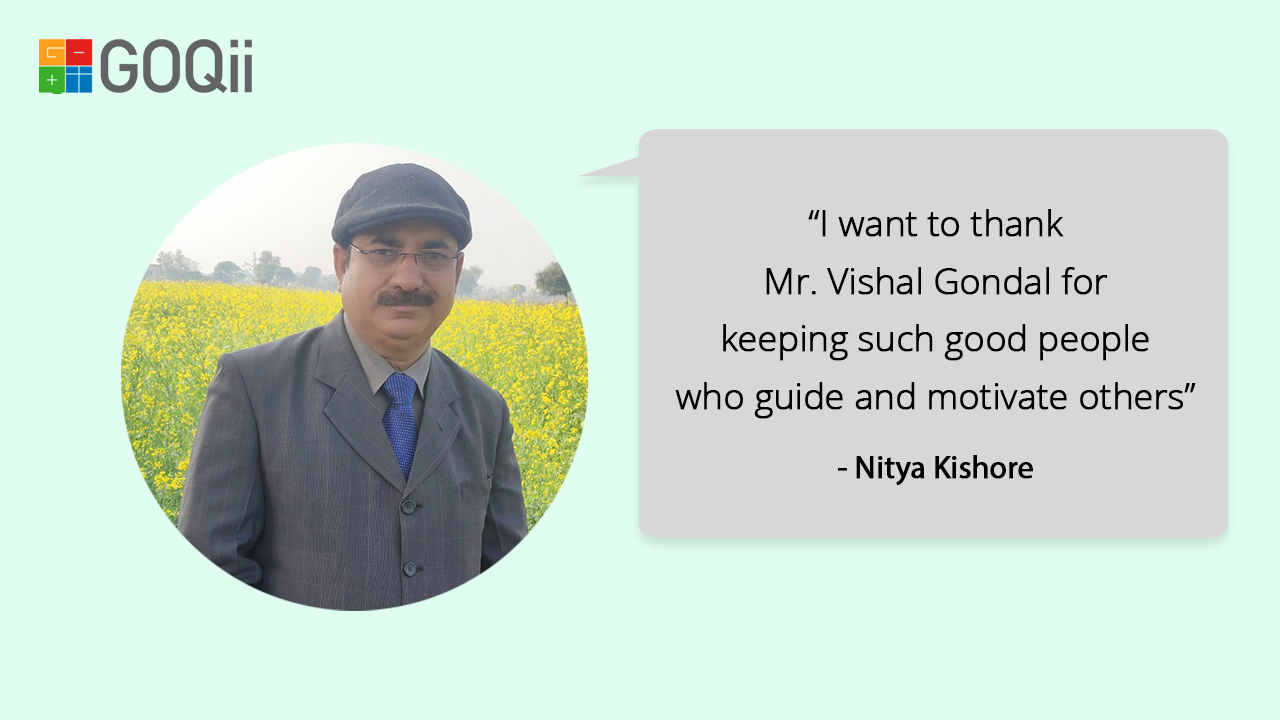 Diabetes – the one word that makes your mind wander in so many directions! You find yourself asking questions like: Will this last for ever? Will I ever get better? How can I manage my diabetes? Well, these are smart questions that anyone should ask. And, yes, you can and will get better! You just need to make a few tweaks in your lifestyle and you should be fine.
Diabetes – the one word that makes your mind wander in so many directions! You find yourself asking questions like: Will this last for ever? Will I ever get better? How can I manage my diabetes? Well, these are smart questions that anyone should ask. And, yes, you can and will get better! You just need to make a few tweaks in your lifestyle and you should be fine.
While it may seem like an insurmountable hurdle or a wall that cannot be breached, there are thousands of diabetics with good testimonies. Aged people who have lived with diabetes so much so that they sometimes forget that they have diabetes. How can this be your testimony? Well, the pointers below show some of the things you can do to kickstart your own journey to overcome diabetes.
Of course it’s not going to be easy to let go of all your favorite meals. But, no one is saying you have to get rid of them all at once. You’ve just got to be smart about it. Do not make diabetes “complex”, make eating “complex” to keep diabetes “simple”. Just as in everything else, a lot of effort has to go into your overall lifestyle if you are to conquer diabetes. Just be conscious and you’ll make headway. To eliminate diabetes, take a step towards improving your eating habits and you’ll feel a lot better generally.
Some Dietary Changes To Help You Manage Diabetes
1. Eat Complex To Live Simple: Eating complex doesn’t mean you have to stop eating everything. It simply means you have to make your carbs complex over simple ones, as these are the best type of carbohydrates for diabetics. Complex carbohydrates digest slowly and maintain steady glucose levels in the body.
2. Make fiber an important part of your diet: Fiber refers to plant-based food that slows down the breaking of carbohydrates and keeps you full for longer periods of time. Yes, fiber can go a long way in improving your situation. You don’t have to go over and under in search of fiber rich foods. You can get your fiber fix by following these simple tips:
- Do not sieve the flour
- Eat whole fruits over a glass of juice
- Choose whole grains and whole pulses
- Eat more vegetables
- Do not peel the edible portion of the fruit for example – apple, guava, pear, peaches
- Make soups and salads your best friends
3. Choose healthier versions of your favorite food
| Instead of these | Choose these |
| White bread | Brown bread |
| Normal roti | Bran roti/multigrain roti |
| Meat | Fish |
| Normal rice/parboiled rice | Brown rice |
| Sugary or flavored cornflakes | Plain cornflakes/oats |
| Sugar | Jaggery/honey |
| Mayonnaise veg sandwich | Hungcurd vegetable sandwich |
| Normal chocolate | Dark chocolate |
| Creamy cheesy dip | Salsa dip |
| Whole milk | Skimmed milk |
| Salted nuts | Unsalted nuts |
| Soda | Salted fresh lime |
| Potato sticks | Raw veggie sticks |
| Fried chicken | Grilled chicken |
| White pasta | Whole wheat pasta |
| Fruit juices | Whole fruits |
It surely can be very difficult to do away with all your favorite meals. Instead of doing away totally, you can instead opt for close alternatives as shown above. Choose the healthier version of your favorite meals and you’ll thank yourself for it.
4. Say “NEVER AGAIN” to Trans-fat: Trans-fat is basically obtained chemically by the hydrogenation of oils. It will make your condition worse! To avoid trans-fats, avoid chips, cookies, pastries and margarine. Incorporate healthy fats by following these simple methods:
- Introduce olive oil or rice bran over butter or ghee
- Remove the skin from chicken before cooking it
- Prefer healthy ways of cooking such as grilling, baking and roasting over frying
- Enhance flavour of food by using more of herbs and spices instead of oil. It will not only give you good taste but also prevent you from consuming extra oil as well as provide you the benefits of antioxidants
- Prefer fish over red meat as it is full of good fat
- Eat fish 2 or 3 times week instead of red meat
- Use hung curd as dressing instead of mayonnaise
- Prefer baked chips over fried ones
5. Choose Low-glycemic index foods: Glycemic Index refers to the rate at which a particular food raises our blood glucose levels. Foods with high GI spike our blood glucose level and vice-a-versa. Again, fiber is your hero! Fiber rich foods have lower glycemic index – another reason why you should take them.
Some Low GI Sources include whole nuts, whole cereals, cherries, oatmeal, apple, vermicelli, whole dals, prunes, plain yoghurt, soymilk, whole milk, peaches, channa dal and peanuts.
6. Eat small but frequently: The logic here is, heavy meals spike our glucose levels. So small frequent meals will keep our metabolism high, while maintaining glucose levels.
7. Walking and Exercise are your best friends: Exercise is important as it helps to maintain your ideal Body Weight which is very important for diabetics. Exercising helps your weight loss efforts, and is especially important in maintaining an ideal body weight.
8. Limit only high caloric fruits: Except for some fruits like mango, banana and chikoo, one can eat any fruit but in prescribed amounts only.
9. Use functional foods in the diet: These foods provide “extra benefits” to your diet. Apart from nutrition, it provides you a number of benefits. Functional foods are full of antioxidants, unsaturated fatty acids and are also rich in fiber. Some of them include mustard seeds, flax seeds, fenugreek seeds, curry leaves, cinnamon, cloves and chia seeds.
10. Before sleeping ask yourself the following questions:
- Am I taking too much of alcohol? If the answer is no, then you are okay
- Am I taking medication properly? If yes, give yourself a pat on the back
- My feet are clean? No? Then rush to the bathroom!
- Am I feeling stressed? If your answer is yes? Chill with music and take deep breaths. Remember nothing comes at the cost of your health and ensure you feel some relief.
- Have I checked my weight?
- Did I walk for 45 minutes today? If yes, you’ve done well. Feel good about it because you are on track to manage diabetes
- Now, time for sleep…Proper timing is essential. Get good sleep.
You can manage diabetes by living healthy. Eating in moderation and eating healthy can go a long way in giving you really good results!
We hope this article helps you manage diabetes effectively. For more help to manage diabetes, get the right guidance and motivation by certified experts, join the GOQii Diabetes Care program. It’s India’s only diabetes program that is driven by Smart Science and Personal Coaching to improve Fasting Blood Sugar (FBS), Postprandial Blood Sugar (PP), reduce HbA1c levels. You can subscribe here: https://store.goqii.com/diabetescare.
To read more on how to manage Diabetes, check out Healthy Reads.
Let’s #DefeatDiabetes and #BeTheForce!
 Getting tired easily, fatigue, black patches around the neck, elbows, knees, knuckles, arm pits or blurred vision, increased thirst, frequent urination, losing weight in spite of eating more, etc. are all signs associated with Diabetes. While this disease develops gradually, Prediabetes is pre-diagnosed diabetes, wherein, the blood glucose levels are higher than normal but not as high to be classified as Type 2 Diabetes.
Getting tired easily, fatigue, black patches around the neck, elbows, knees, knuckles, arm pits or blurred vision, increased thirst, frequent urination, losing weight in spite of eating more, etc. are all signs associated with Diabetes. While this disease develops gradually, Prediabetes is pre-diagnosed diabetes, wherein, the blood glucose levels are higher than normal but not as high to be classified as Type 2 Diabetes. Diabetes has become one of the most common lifestyle disorders affecting both, urban and rural areas alike. You can attribute this to overeating, obesity, stressful, busy and sedentary lifestyles which lead to the early symptoms of diabetes. This also includes lack of proper nutrition which leads to disturbed glucose metabolism. Heredity is also a major factor in the development of the disease. It is usually misunderstood that eating only refined sugar in excess will lead to diabetes but that’s not the case. Excess intake of proteins and fats also leads to development of diabetes because ultimately they are also metabolized and converted to glucose.
Diabetes has become one of the most common lifestyle disorders affecting both, urban and rural areas alike. You can attribute this to overeating, obesity, stressful, busy and sedentary lifestyles which lead to the early symptoms of diabetes. This also includes lack of proper nutrition which leads to disturbed glucose metabolism. Heredity is also a major factor in the development of the disease. It is usually misunderstood that eating only refined sugar in excess will lead to diabetes but that’s not the case. Excess intake of proteins and fats also leads to development of diabetes because ultimately they are also metabolized and converted to glucose.



